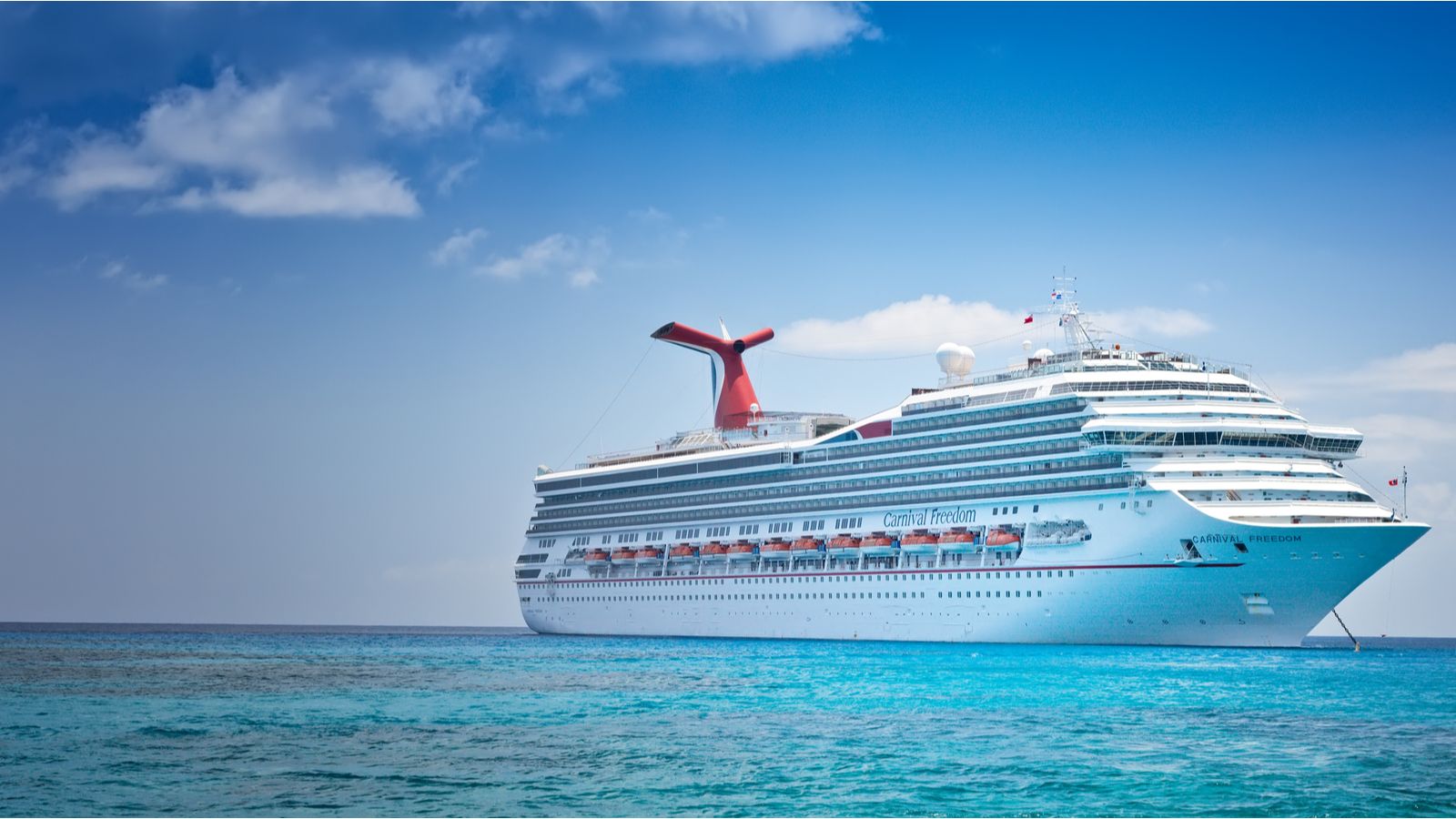Carnival (NYSE:CCL) stock has had a crazy year. The shares collapsed at the beginning of the pandemic, falling from $50 in January to just $8 at their March lows.
Traders reasonably assumed that the company would be one of the novel coronavirus’ biggest victims. Who would want to go cruising again anytime soon? Throw in the economic downturn, and it was a perfect storm for the cruise lines.
Since then, however, sentiment has flipped 180 degrees. Carnival’s shares tripled off their March lows, with many traders starting to anticipate a full recovery by the stock.
As the economy starts to reopen, we’re seeing tentative signs of life from the travel sector. Plus, Carnival was able to raise money even during the peak of the crisis. As a result, Carnival is going to steer through 2020 without getting shipwrecked.
However, mere survival doesn’t mean the stock is going back to its old highs anytime soon. Carnival’s shares have taken a sharp turn lower this week and with good reason. Here are three things that are causing CCL stock to sink.
The Reopening Trade Is Losing Steam
An interesting effect of the work-from-home trend is that a lot of people have more free time. Meanwhile, consumers have more disposable cash because most commercial venues have been closed. Consequently, day trading has surged Folks have been rushing to open brokerage accounts and profit from the the economic recovery.
And, up until this week, those traders had bet heavily on stocks that were benefiting from the reopening of states. Robinhood’s trading data shows that users were flocking to cruise lines, airlines, and casino stocks.
But this week, things have reversed sharply. Now the Robinhood crowd is dumping cruise and airline stocks as quickly as possible. On Wednesday, for example, the travel stocks plunged. And Robinhood’s traders were a big part of that; the ownership of CCL stock fell by the fourth most of all the names on the platform on Wednesday. Royal Caribbean (NYSE:RCL) was the ninth most popular stock to unload, and most of the rest of the top decliners were airlines.
It seems that Robinhood’s traders are dropping the travel sector in favor of big tech stocks and green-energy names. Short-term traders helped power the huge rallies of Carnival and other travel stocks. Once the momentum reverses, however, these shares could plummet.
The Virus Numbers Are Worrisome
While the country’s attention has turned from the coronavirus towards protests against police brutality, the virus hasn’t exactly disappeared. In fact, the number of new cases is spiraling higher across much of the South and Southwest.
Arizona is getting hit so hard, for example, that its hospitals were told by the state to activate their emergency plans.
Most investors figured the virus wouldn’t disappear overnight. But the market isn’t pricing in a huge second wave yet, either. Keep in mind that Carnival is supposed to resume sailing later this summer. It’s hard to imagine that it will be able to start cruising again if quarantines return and hospitals get flooded with patients. Things are trending in the wrong direction for Carnival at this point.
Carnival Had to Raise Billions of Dollars
Carnival raised billions of dollars earlier this spring. It did so both by issuing new bonds and selling more stock. That was a good move because it kept the company from running out of cash.
However, Carnival’s fundraising was expensive. The company issued more than 60 million shares for $8 per share, raising just $500 million.
To put that in perspective, Carnival traded for $50 per share before the pandemic hit. At pre-Covid levels, that 60 million shares of stock would have been worth $3 billion. When people talk about CCL stock returning to old highs, they forget that the company now has much more stock outstanding than it used to.
On top of that, it’s paying a painful 11.5% interest rate on the $4 billion of debt it raised, increasing its annual interest costs by nearly $500 million. Previously, the company paid less than $200 million per year in interest. Tripling that figure will make a major dent in its profitability, even if the cruise industry’s demand returns to 2019 levels.
The Verdict on CCL Stock
I give Carnival’s management a lot of credit. It kept a cool head during the crisis and managed to raise much-needed funds on acceptable, if unpleasant, terms. A black swan event like this could have easily wiped out Carnival, yet it’s still afloat. The company will live on to fight another day.
Yet we can’t lose sight of the real economic harm that Carnival has suffered. It had to dilute its shareholders heavily. And its new debt came at a high interest rate. That will hurt its profitability going forward.
And on the demand side, while cruises will resume, don’t expect them to be 100% full anytime soon. Between older people being afraid to take cruises and some people not having money after losing their jobs, the demand for Carnival’s cruises will be below pre-pandemic levels for quite awhile. Additionally, there’s risk that a second wave of the virus could further lower demand. As a result, it’s safer to stay on the sidelines on CCL stock for now.
Ian Bezek has written more than 1,000 articles for InvestorPlace.com and Seeking Alpha. He also worked as a Junior Analyst for Kerrisdale Capital, a $300 million New York City-based hedge fund. You can reach him on Twitter at @irbezek. At the time of this writing, he held no positions in any of the aforementioned securities.
